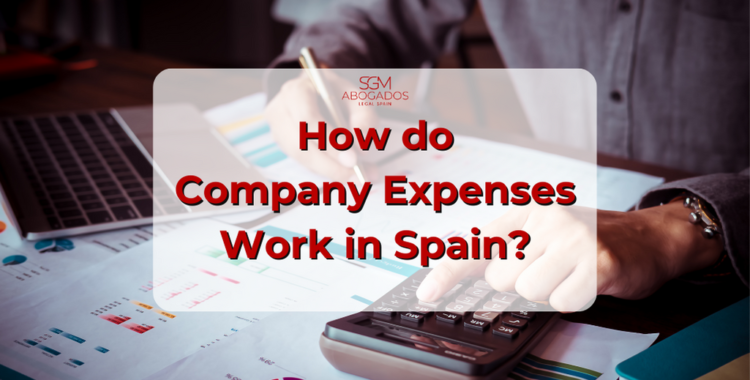How do company expenses work in Spain?
Navigating Company Expenses in Spain: A Practical Guide
Discover the essentials of managing company expenses in Spain, from understanding your rights to claiming them effectively. Known as ‘dietas’, these are not your regular salary, but extra compensations for work-related costs outside the usual workspace, like travel and accommodation.
Dive into the legal framework governing these expenses, including the crucial Workers’ Statute and Collective Agreements, which detail your entitlements and the conditions under which you can claim. Learn about various expense categories such as transport, accommodation, and meals, and get insights into the Remote Work Law’s impact on expenses like internet and electricity.
Plus, unravel the tax implications of expense claims, ensuring you navigate these financial waters with confidence and clarity.
Article 40 of the Workers’ Statute lays down a compelling obligation on companies to provide compensation for temporary relocations through allowances. It vividly states: “Driven by economic, technical, organizational, or production needs, or in connection with hiring for business operations, companies may undertake temporary transfers of their employees, necessitating them to reside in a different town than their usual abode, covering not only their wages but also their travel expenses and subsistence allowances.”

However, it’s essential to note that company expenses are not an automatic entitlement for all workers in Spain. Typically, you can only claim them if there was a prior agreement with your company, typically outlined in your company’s Collective Agreement.
In the Collective Agreement, if it stipulates that you can claim expenses, it should be crystal clear about when, under what circumstances, and the precise amount you can claim.
What if your company lacks an agreement on expenses?
In the absence of a Collective Agreement or contractual provision regarding company expenses, it doesn’t automatically mean you’re out of luck. As highlighted in the Workers’ Statute mentioned earlier, companies still have an obligation to reimburse you for out-of-pocket expenses.
For example, if you’re sent to another city for a conference, you shouldn’t have to foot the bill for the hotel; instead, the payment method may differ. You might initially cover the hotel cost, and then your company would reimburse you, or the administrative department could handle the booking and payment directly.
In the latter scenario, you won’t receive cash, but you’ll still enjoy the benefits of staying in the hotel.

What can you claim as company expenses?
While we’ve mentioned examples like hotels and travel tickets, there are three primary expense categories you may be eligible to claim:
Transportation: When traveling for work, your company should cover transportation expenses, which encompass not only transport tickets but also fuel, taxi fares, and vehicle maintenance. The exact reimbursement per kilometer will depend on your company’s Collective Agreement, but typically, up to €0.19 per kilometer is exempt from taxation.
Accommodation: These expenses encompass hotel costs when you’re working away from home. The Collective Agreement should specify the type of hotel and the nightly cost, tailored to your company’s policies.
Food: Whether you’re away from the office for a day or several days in another city, your company should cover your meal expenses. Companies often set a daily budget for food expenses, and they may handle this directly at the hotel or reimburse you based on your receipts.
Internet, electricity, and other remote work expenses: Spain introduced a Remote Work Law due to changes brought about by the pandemic. Under this law, the company is responsible for paying some or all of the costs related to internet, electricity, and equipment needed for remote work, either through a collective union agreement or a direct arrangement with the employee.

What are the tax implications of company expenses?
While extra expenses should technically be included on your payroll under the accruals section, they should not be considered part of your salary. If you receive expense payments from your company rather than having them cover your expenses directly, it may have tax implications.
As long as expenses for accommodation and food don’t exceed €53.34 within Spain or €91.35 abroad, you won’t be subject to personal income tax on them, and they won’t need to be included in your income tax return. Similarly, if they don’t exceed €26.67 in Spain for expenses without overnight stays or €48.08 abroad, the same tax exemption applies.
It’s important to demonstrate that these trips are for work purposes in a different municipality than your usual place of work and do not last more than 9 months continuously. If there are any discrepancies between your accruals and bank statements, the tax authorities may investigate your personal income tax.
Given that hotel expenses are often not substantial, especially in major Spanish cities, it’s often preferable for your company to cover the hotel costs directly or use a company card rather than providing you with the funds.














